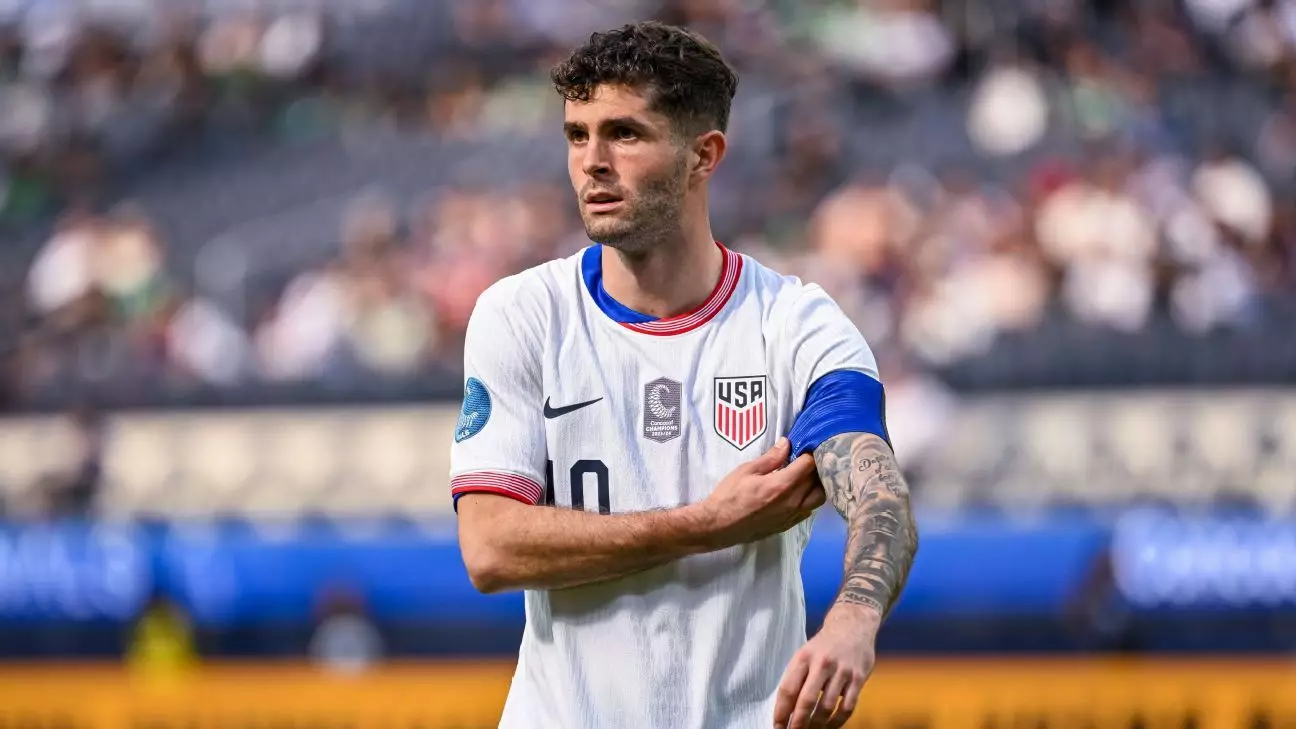In the world of soccer, the names that resonate often define eras. One such name emerging from the United States is Christian Pulisic. The head coach of the United States men’s national team (USMNT), Mauricio Pochettino, boldly suggested that Pulisic should be considered the Lionel Messi of American soccer. This comes not just from his immense talent but also his unparalleled ability to inspire a nation hungry for football glory. Pulisic, now 26, has made waves in an otherwise competitive European scene, proving himself vital to both club and country. His statistics speak volumes—a remarkable 32 goals and 18 assists in just 76 appearances for the national team since his debut in 2016.
The significant pressure that accompanies Pulisic’s talents is not lost on him. Under immense scrutiny and expectation, he has performed exceptionally well, leading the USMNT to multiple Concacaf Nations League titles during his tenure. Playing for high-profile clubs like Borussia Dortmund, Chelsea, and now AC Milan has further sharpened his skills, culminating in his best club season to date with 17 goals and 12 assists. In the spotlight that follows him, it’s evident that Pulisic has the potential to capture the attention of young American fans, just as Messi does in Argentina. Unfortunately, with the weight of such expectations also comes the criticism that he must navigate, which is a shared experience among soccer players of his caliber.
The Responsibility of a Leader
A player of Pulisic’s stature is not just a prolific scorer; he’s also a natural leader. Having captained the national team on various occasions, Pulisic understands that his performances can significantly impact the perception of soccer in the U.S. This immense pressure can be both a burden and a catalyst for growth. Interestingly, despite having established himself as a playmaker, Pulisic opted not to join the national squad for friendly matches and the Gold Cup, prioritizing recovery after a grueling season. Critics may view this as a sign of detachment, but Pochettino defended his decision, citing the extensive communication they shared prior to the announcement.
A national team player needs to balance individual ambition with team responsibilities. Pulisic is at a unique intersection where personal goals, team outcomes, and national pride converge. He is not just playing for himself; he is representative of a generation of American soccer players aspiring to elevate the sport’s status domestically and internationally. His absence from mid-year competitions, although disappointing for fans, was a calculated decision aimed at ensuring he returns at his best for the crucial 2026 World Cup.
A New Era for USMNT
With Pulisic playing a pivotal role in the USA’s pursuit of soccer glory, Pochettino’s thoughts also shed light on a broader concern: the need for every player in the USMNT to share equal passion for representing their country. The contrast between American players and their counterparts like Messi or Neymar is acute. In countries like Argentina and Brazil, national pride is deeply rooted; players are immensely motivated, regardless of whether they are participating in a friendly or a high-stakes World Cup match. Pochettino emphasized that the desire to play should stem from a profound love for the national team and its legacy.
In this light, it’s vital for American players to foster the same fervor. Pulisic should embody this spirit as he leads a team that includes various sidelined veterans, who will also play significant roles in shaping the future of US soccer. Pochettino’s clarity on prioritizing national representation serves both as a wake-up call and a rallying cry for American players who need to forge their connection to the game and their country.
The Path Ahead
The USMNT faces upcoming challenges, including international friendlies against Turkey and Switzerland, followed by competitive matches in the 2023 Gold Cup. Each game presents an opportunity for Pulisic and his teammates to cement their positions as the faces of American football. While criticism can be constructive or damaging, the roadmap laid out by Pochettino and the urgency to elevate the sport vibrantly illustrates the responsibilities carried by these players. Pulisic’s journey is emblematic of a larger movement—a revolution in American soccer, igniting dreams in young athletes across the country.
The true test for Pulisic and his teammates is to channel their talent, leadership, and national pride into creating a legacy that both honors past heroes and inspires the next generation. If they can do this while embracing the expectations set upon them, they may indeed usher in an era where soccer in the U.S. competes on the world stage with the same intensity and fervor as some of the sport’s traditional powerhouses.


Leave a Reply